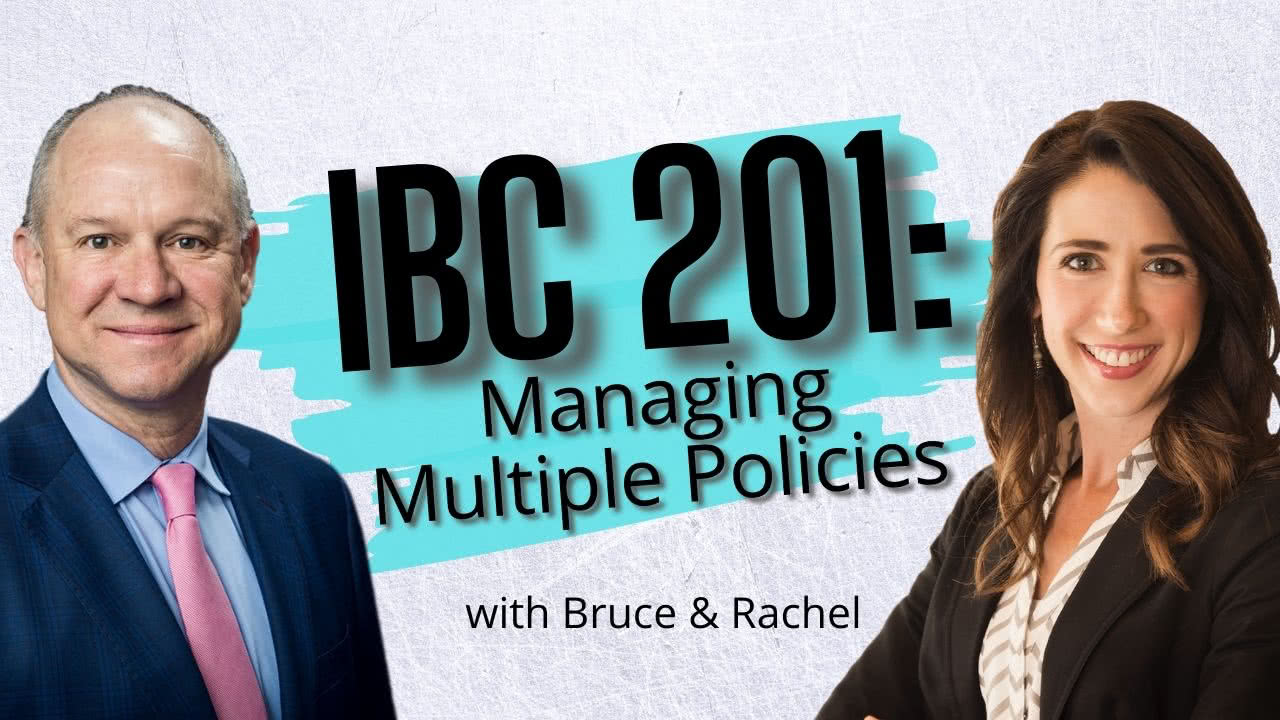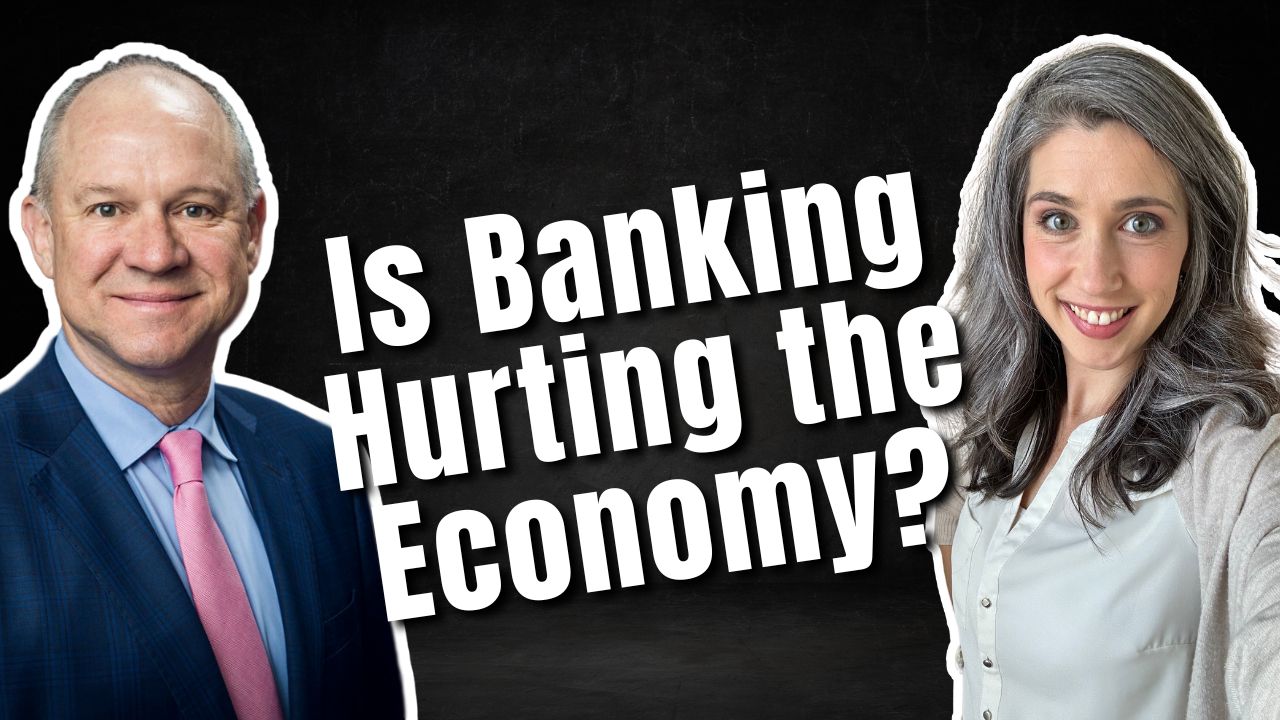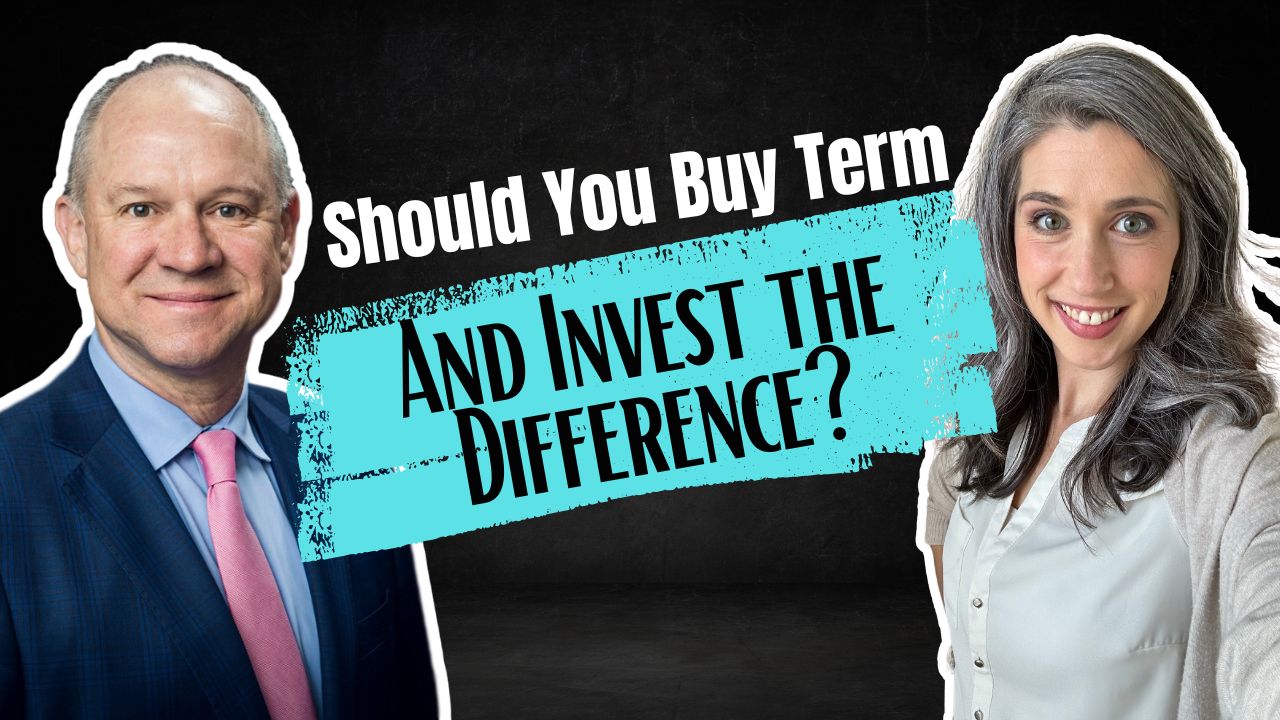
Managing Multiple IBC Policies in Your Infinite Banking System
Are you planning to have multiple IBC policies, and don’t know where to start?
If you’re already a few years into using the Infinite Banking Concept, you’ve seen and experienced the power of storing cash in a whole life policy. You’re earning interest and dividends, have exceptional compounding power, and guaranteed access to use your money. You’re also watching the death benefit increase.
Now you want to store more cash. It’s time to think about how to use all your policies well and maximize their capacity.
Today, we’re continuing the conversation in our series about how to take your Infinite Banking to the next level. In the last episodes, we dug into how to maximize your current Infinite Banking Policy. Then, we talked about insuring other family members, like children and grandkids. Now, we’ll talk about managing multiple policies.
So if you want to hear about what to do after your whole life insurance policy is already working… tune in now!
Podcast: Play in new window | Download (Duration: 24:30 — 28.0MB)
Subscribe: Apple Podcasts | Spotify | Android | Pandora | RSS | More
The Problem of Information
“The internet has allowed us to be drowning in information while starving for wisdom.”
That’s the unfortunate truth of the internet—everything seems like it is generated for clicks. That’s why we are striving to help impart wisdom so that you can make the best decisions for your family today. The purpose of today’s content is to help you take ACTION. Because too much information can cause inaction.
Storing Capital
Everybody has a need to store capital. And there are many financial institutions that allow you to store capital: banks, insurance companies, Wall Street, pension plans, and your own home. The real work is in evaluating where your capital should go, in order to do what you want it to do.
Remember: what is the purpose of your money?
Once you’ve identified what your money should do—evaluating the WHERE becomes simpler. And while there’s no perfect solution, there are products with flexibility and control. Primarily, cash value insurance offers you liquidity, safety, growth, and certainty. More importantly, it can offer you flexibility and control.
It’s important that when your future is uncertain, you have something that IS certain. You may not know how much money you’ll have in the future, or what your job will be, or how your family will grow. But by having cash value life insurance policies, you WILL know that you have money you can use strategically. You won’t lose it if the stock market crashes, it will continue to grow, and you don’t need permission to access it.
How do you have the best-case scenario no matter what happens?
The Purpose of Your Policy
If you do not believe in the death benefit, and you’re only worried about the cash value, then you should just keep your money in the bank. Rodney Mogen, who has joined us on The Money Advantage before, has expressed this sentiment. And we fully agree. While it’s easy to talk about the benefits of the cash value in terms of infinite banking, it’s harder to talk about the death benefit.
You can likely imagine why, as talking about death is often uncomfortable. We don’t like to think about our own deaths, let alone the deaths of our loved ones. But it’s an essential component of life insurance that helps protect the people you love from loss of income.
So if you’re only interested in life insurance because of the cash value, and you’re not invested in the protection component, how likely are you to maintain your policy?
It becomes easier to manage a system of policies when you are also thinking of the generational impact. In other words, the income protection from loss of life, and the transfer of wealth that occurs therein.
Why Take a Policy Loan?
It’s simple: control. It’s popular now to use your cash value as collateral, in order to take a lower interest rate. Why pay the life insurance company 5% when you can pay the bank 3.5%? The answer is, it depends!
The insurance company offers you control. They’ll give you a loan regardless of what the funds are for, unlike a bank, as well as control over the repayment terms. You can pay on your own schedule, effectively eliminating late payments and credit bureau reporting.
A third-party lender is not going to offer that same control. So it’s important to consider your actions strategically. Will you benefit from more control over the repayment terms?
The bottom line is that if you have the life insurance policy in place, you have the options and the freedom to make several different choices, depending on your personal circumstance. This is why it’s important to evaluate the information you get online. Anyone telling you there’s only one right asset or strategy should be questioned.
Should You Pay Your Premium or Your Loan?
If you think about it logically, the premium payment will build up your cash value, or leveraged death benefit. This is the portion of your policy that acts as collateral on the loan and is compounding within your policy.
If you’re in a place of limited income for the time, it’s important that you first consult with a trusted advisor. They’ll be able to analyze your policy and your specific circumstances. They’ll help show you the mathematical solution, the emotional component, and the real-world scenarios.
That being said, it’s often better to pay your premiums before you pay your loan. This is because of that cash value build up—so that you’re growing your floor. If you have limited income, you don’t even have to pay your whole premium. You can pay the base and forgo the PUAs, or use dividends to help pay premiums.
If you pay the loan, you may free up some of your cash value, however, the premium will still need to be paid. One way companies ensure premium payments is to put up another loan against the cash value for that premium amount.
Extenuating circumstances may include those who find debt stressful or have more flexibility in an older policy. Again, an experienced advisor can help you figure out the best path to accomplish your unique goals.
Building a System of Multiple IBC Policies
You can do a lot with multiple IBC policies in your life. And it’s going to take a leap of faith to get started. There are a lot of great reasons to have a whole life insurance policy, and we can talk about them in-depth, but it’s often once you’ve taken that leap that you really see the possibilities.
Book A Strategy Call
Do you want to coordinate your finances so that everything works together to improve your life today, accelerate time and money freedom, and leave the greatest legacy? We can help!
Book an Introductory Call with our team today https://themoneyadvantage.com/calendar/, and find out how Privatized Banking, alternative investments, or cash flow strategies can help you accomplish your goals better and faster. That being said, if you want to find out more about how Privatized Banking gives you the most safety, liquidity, and growth… plus boosts your investment returns, and guarantees a legacy, go to https://privatizedbankingsecrets.com/freeguide to learn more.
Fractional Reserve Banking Creates Inflation: Infinite Banking is the Solution
Inflation causes everything to feel more expensive, so what do you do to protect your money from inflation? Today, we’ll explore the link between inflation and fractional reserve banking, and how Infinite Banking is the sound money solution. A thought-provoking journey through inflation, fractional reserve banking, and the revolutionary concept of infinite banking. This episode…
Read MoreBuy Term and Invest the Difference: Here’s What’s Wrong
Are you trying to decide which type of life insurance to buy? You want to protect your family in case something happens, so how do you do it best? Whole life insurance is often rejected as expensive and a poor “investment,” while mainstream opinion leans in favor of the “buy term and invest the difference”…
Read More


